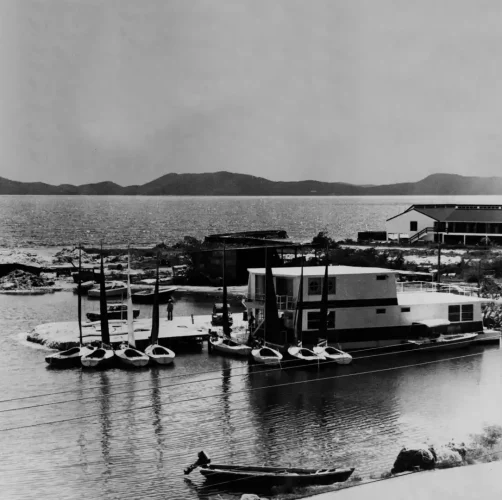Currently in the BVI, there are more vacant houses and rental properties than there are buyers and occupants. This should make for a competitive market in which the buyer or renter gets a good deal. Unfortunately, this isn’t always the case. Both sellers and landlords in the BVI have been hesitant to lower their asking prices, causing their properties to remain unsold or unoccupied and often costing the owners much more in the long run.
“If you look in the newspaper, there are tons of houses on the market for rent,” Maritha Keil, managing director of Caribbean Realty, says. “Landlords are now realizing that this market is forcing them to become more competitive.” Many of the houses are sitting vacant for months and months, causing them to lose a great deal of money in the long term.

For example, if a house is advertised for $2500/month in January and sits vacant for five months, then the landlord receives no income whatsoever for five months. Let’s say the landlord eventually rents it in May for the desired price, after the proper calculations, he will only make $17,500 that year. If the landlord had lowered the rent to $2,000 and rented the house immediately in January, then the amount of rent received for that year would have been $24,000. As the economy improves and jobs are more secure, then landlords can raise the rent along with the island or world trend. “Currently there is a lot of inventory, and some people have been pricing according to what they see advertised rather than what is actually being rented or sold and have possibly been ill-advised that they can expect too much,” Maritha comments. Reasonably priced rentals are more likely to stay occupied, whereas a highly priced rental will eventually lose tenants who find a better deal. This causes the rental to be vacant again, losing the owner additional rental income over the long run.
As far as property sales are concerned, “things are not generally selling in the $1.5 to $3 million dollar range,” Maritha says. Part of the reason for the lack of sales in this price range is that many optimistic homeowners set their prices too high when the economy was on the rise. “It’s been going on for over two years now. There was such an increase in the market that things got out of hand because either agents or sellers had been watching the trend. It’s very hard now for sellers to lower their expectations into a more realistic price range in today's economic climate.” Maritha also observes that sellers are often guilty of pricing without using recent comparables. “My advice to proactive sellers is that in order to determine a good listing price, they should have a professional and confidential appraisal by someone who will use current comparables, rental income and construction costs to help determine the most accurate and present market value of their home. Banks are much more conservative now, and the stamp duty paid at completion is based on the appraised value or purchase price, whichever is higher. This information will be required by the purchaser anyway. The appraisal is calculated by using actual sales in the last few years combined with the cost to build and potential rental income. This would then be a more objective opinion from which to work in setting a competitive listing price.” Not all houses are overpriced. This may mean leaving the price just as it is and just being patient for more buyers to materialize. It is not just a matter of dropping the price, but setting the price correctly in the first place which will help to keep things competitive.

Establishing a realistic competitive price may still not be enough to guarantee either occupancy or a contract for sale. In this economy, owners also need to ensure their properties are well maintained and occupant ready. “Landlords who keep their property in good condition have the best chances of renting at the moment,” property manager Caspar Luiken says. “A proactive landlord will tend to keep his property occupied,” Maritha adds. She also recommends that sellers consult professional interior designers or get their real estate agents advice on what would help to rent or sell their houses. “Some houses need to be redecorated or upgraded in order to market them, so a makeover is sometimes advisable. There are interior decorators on island that are hurting for work, so this would be a good way to get affordable help and improve the sellability of the home.” Caribbean Realty is often called upon to give such advice.
This isn’t to say that fair deals on updated properties don’t exist in the BVI. They do. But often they go fast. Hopefully, more and more will emerge as owners acknowledge that they will benefit by re-evaluating their prices instead of continuing to pay mortgages on unoccupied rental properties. Those waiting for their houses to sell may just have to be patient until the international economy recovers while being prepared to lower their prices if the world economy continues to decline. It has been said that Tortola is usually slow to feel the effect of the world economy and also slow to respond. This is to our advantage if there is a quick turnaround, but we will need to stay abreast of current trends both abroad and at home.






